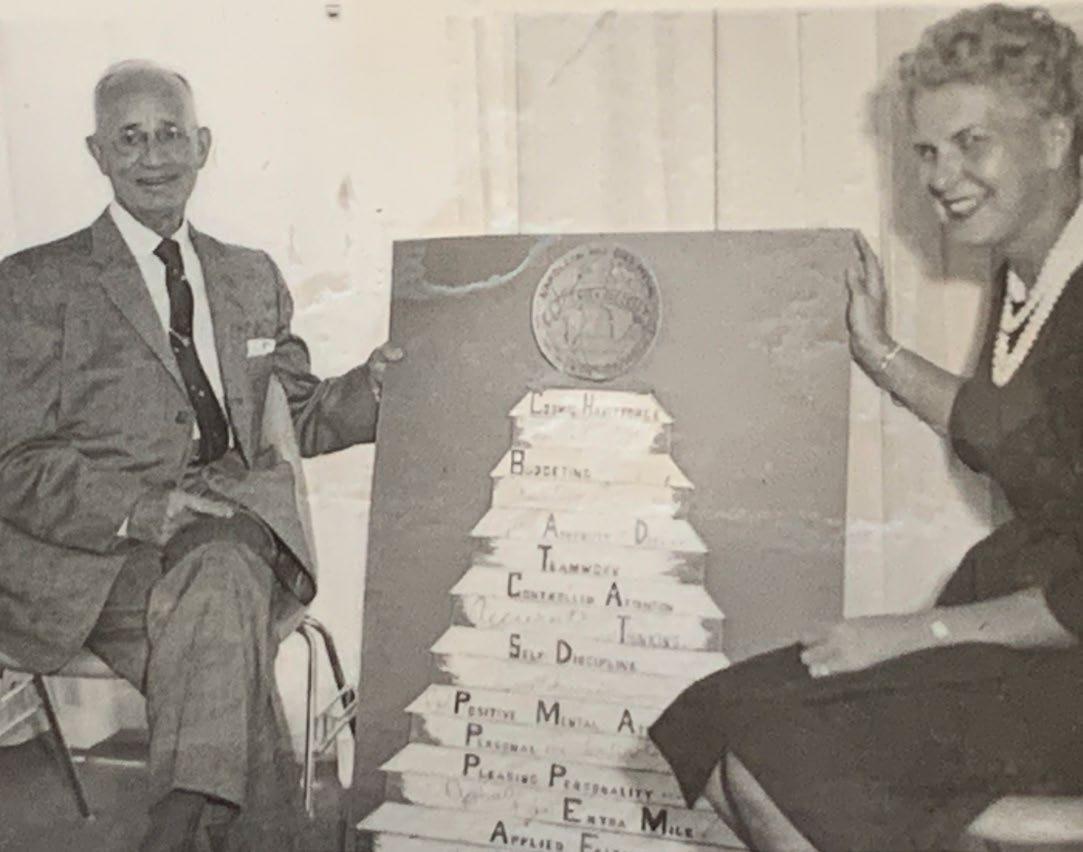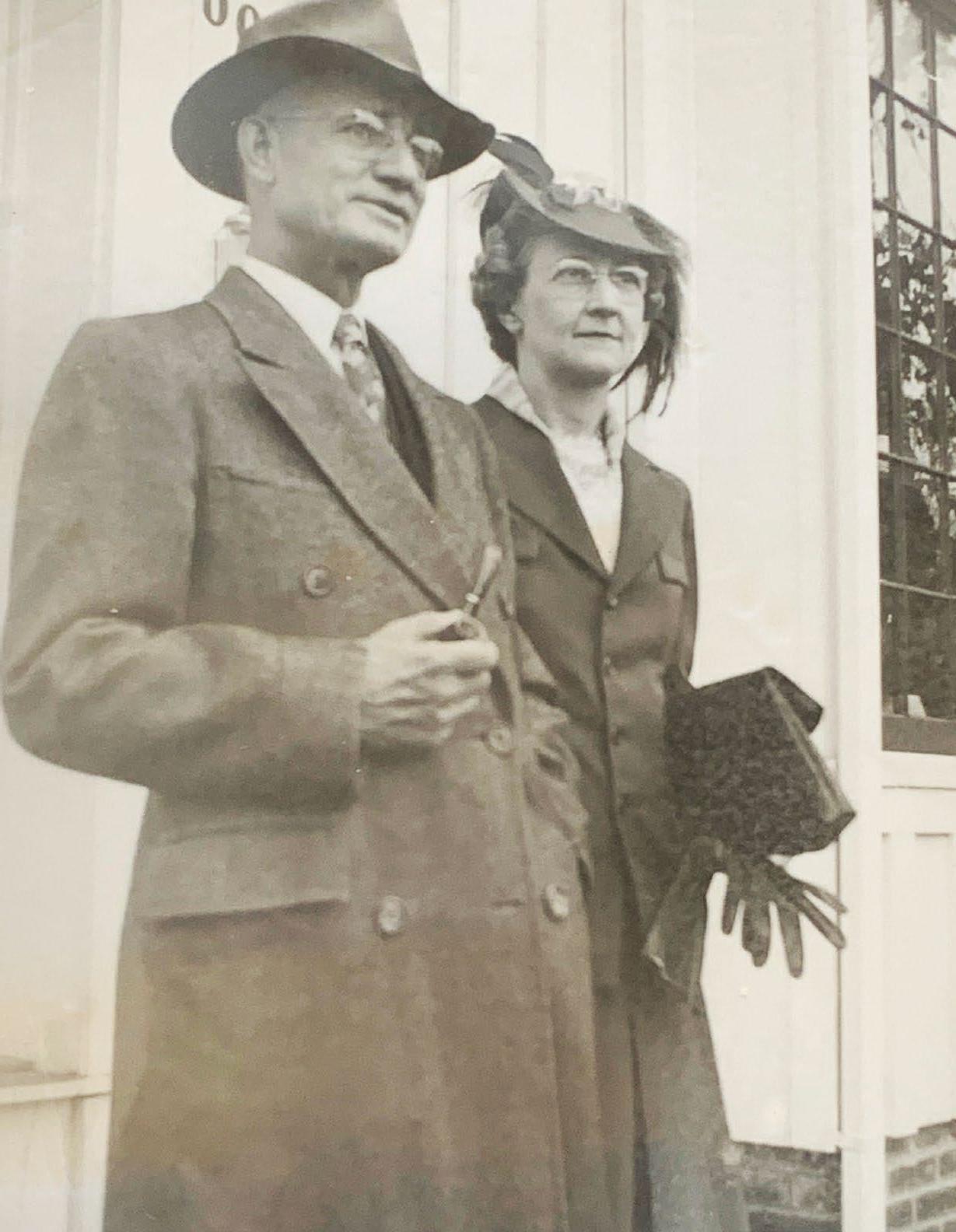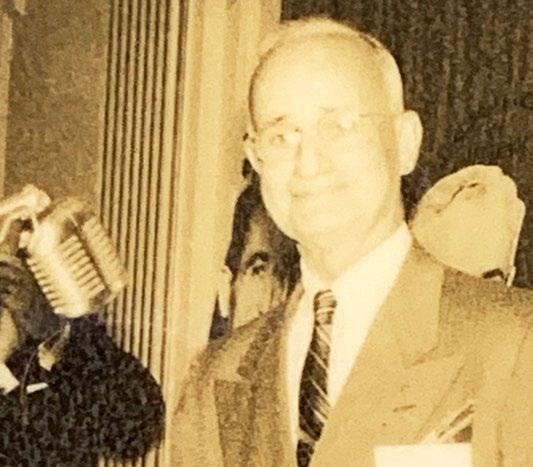
6 minute read
Changing the world one speech at a time
from INformed People Magazine, Special Edition featuring The Napoleon Hill Foundation, September 2020
by J.B. Hill
ONE SPEECH AT A TIME
Advertisement
Napoleon Hill rarely used more than a single page of notes to deliver his speeches. While many of these notes still exist, little of what he actually said has survived. It took me many years to locate one of my grandfather’s speeches in print. Finding one was more than just exhilarating to me; it was miraculous.
The document I found was a transcript of a commencement address that Napoleon gave at Salem College (now Salem International University) in 1922. It had been published in a local newspaper under the title “The End of the Rainbow.” A copy was preserved on microfilm in the archives of Salem College. When printed, it required magnification to read, and the text was so faded that it took more than a day to recover, which I did by dictating it one word at a time to my wife.
Napoleon wrote many times that adversity should be viewed as a blessing in disguise. In the 1922 commencement address, Napoleon shows how his many business failures were actually turning points that led him to greater opportunities. Each failure had therefore been a blessing.
He attributes his success to following failure to the habit of performing more and better service than he was being paid for. This trait was the precursor of two of his principles of success: “Learning from Adversity and Defeat and Going the Extra Mile.”
Napoleon delivered the 1922 speech in Salem, West Virginia, not far from his wife. Florence’s family home in Lumberport. Although he was the editor and publisher of Napoleon Hill’s Magazine at the time and a success by every measure, he had much to prove to family. Ten business failures in a dozen years had soured family attitudes toward him. So, the commencement address was Napoleon’s opportunity to be applauded before his wife’s friends and family, and in this, he succeeded. His delivery rhythm was mesmerizing to his audience. He used his personal history of failures to demonstrate how he was able to overcome adversity. The speech was touted to be the greatest ever given in that part of the state. When it ended, amid resounding applause, Napoleon stood before family, vindicated.
I sent a copy of the speech to Don Green, who is executive director of the Napoleon Hill foundation. Don immediately saw the potential for a book and began searching through the archives of the foundation for additional material. over several years, he discovered a few more speeches and a number of articles that he collated for this book.
One of the articles, “This Changing World,” had been discovered behind the mantel of a fireplace in Napoleon’s boyhood home. It was written during the Great Depression, probably near the end of 1930.
When the Depression struck, Napoleon was living with family who provided him with secure employment. However, to him, his acceptance of that security meant that he had failed. So, in March 1931, Hill did exactly what he needed to do - and perhaps exactly what he shouldn’t have done: he quit his job and left for Washington, DC.




"Whatever the mind can conceive and believe, the mind can achieve. —Napoleon Hill ”
By this time, Napoleon’s list of failed business ventures was impressive. His decision to try once more to succeed on his own must have been founded in faith - he certainly possessed little else. The article retrieved from behind the mantel provides an understanding of that faith and insight into why Napoleon later left family and security for Washington, DC, during a worldwide depression. “This Changing World” answers many persistent questions concerning Napoleon’s spiritual views.
Don also located two copies of one of Napoleon’s earliest speeches, “What I Learned from Analyzing Ten Thousand People.” One had been stored in the Napoleon Hill Foundation archives, and the other had been published in the February 1918 issue of “Modern Methods.” Napoleon wrote the speech while serving as dean of the George Washington Institute of Advertising (now the Bryant & Stratton Business College of Chicago), where he later became president and director of the Salesmanship and Advertising Department.
In this speech, Napoleon talks about the five “requisites” for success: self-confidence, enthusiasm, concentration, a working plan, and the habit of performing more and better services than paid for. It reveals Napoleon’s early thinking about three of what would become some of his principles of success: Enthusiasm, Controlled Attention, and Going the Extra Mile. Later he grouped the requisite of “self-confidence” under the heading of Enthusiasm, and “a working plan” became part of the process of achieving a Definite Major Purpose. Although Napoleon understood the importance of Andrew Carnegie’s “Master Mind” idea, he did not mention it in this speech. I suspect it just wasn’t pertinent for an audience of a salesman who tend toward having individual pathways to success.
At the end of 1952, Napoleon left his wife, Annie Lou, in California for a year while he worked with W. Clement Stone on a number of projects. For several months he and Stone toured together on the lecture circuit, with Stone often introducing Napoleon as a keynote speaker.
Don discovered a recording of one of these keynotes titled “Maker of Miracle Men” and had it transcribed for this book. It is perhaps the most interesting of his finds because it faithfully depicts Napoleon in extemporaneous mode. Napoleon’s wit and spellbinding oratory is palpable in the prose.
By the middle of the 1950s, Napoleon was well known nationally as a speaker. His lectures had spread to radio and television, and Pacific International University had awarded him an honorary doctor of literature degree. In 1957, Salem College invited him back to give a baccalaureate sermon and to receive a second honorary doctorate.
By this time, Napoleon’ ideas about success had matured until they had morphed into concrete principles. Instead of lecturing about the five requisites for success, he covers in the baccalaureate sermon, titled “The Five Essentials of Success,” the five most important principles of success. Like the 1922 commencement speech, it too was applauded wildly by his audience It is interesting to note that after thirty-five years of thought, only Going the Extra Mile among the original five 1922 requisites for success remained essential in Napoleon’s mind. The other requisites had been replaced by four essential principles: Master Mind, Definiteness of Purpose, Self-Discipline, and Applied Faith.



This edition of Napoleon Hill’s Classic Think and Grow Rich is a reproduction of Napoleon Hill’s personal copy of the first edition, the ONLY original version recommended by The Napoleon Hill Foundation, originally printed in March of 1937. The most famous of all teachers of success spent a fortune and the better part of a lifetime of effort to produce the Law of Success philosophy that forms the basis of his books and that is so powerfully summarized and explained for the general public in this book.
In Think and Grow Rich, Hill draws on stories of Andrew Carnegie, Thomas Edison, Henry Ford, and other millionaires of his generation to illustrate his principles. This book will teach you the secrets that could bring you a fortune. It will show you not only what to do but how to do it. Once you learn and apply the simple, basic techniques revealed here, you will have mastered the secret of true and lasting success.
Money and material things are essential for freedom of body and mind, but there are some who will feel that the greatest of all riches can be evaluated only in terms of lasting friendships, loving family relationships, understanding between business associates, and introspective harmony which brings one true peace of mind! All who read, understand, and apply this philosophy will be better prepared to attract and enjoy these values. Get your copy today!







